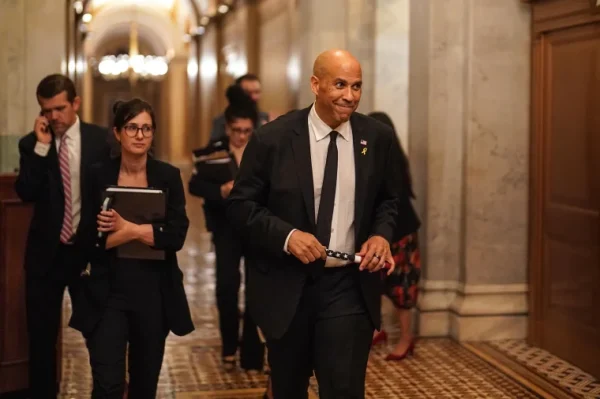Warren’s Medicare for All Transition Plan Reveals Lack of Commitment
Policy and tactical differences matter in the health care debate.
Despite spending over $10,000 per capita on health care — more than any other Organisation for Economic Co-operation and Development nation, and more than double most of them — the U.S. is only the 35th healthiest country in the world. The health care industry fleeces millions of Americans every year while making life-saving drugs, treatments, and care regimens effectively unattainable, and these same Americans are fed up.
This year, only improving the economy outranked improving health care on Americans’ list of priorities — and then only by one percentage point. Next year, health care should top the list if trends prevail. With the 2020 presidential election bearing down on voters, there is no better time to address our broken health care system. The most critical decision Americans can make is who leads that charge. Policy and tactical differences matter.
Despite a broad field of Democratic candidates, only two of the major candidates — Elizabeth Warren and Bernie Sanders — support Medicare for All, the health care policy based on Sanders’ yet-to-pass Medicare for All Act. The act proposes Medicare on steroids, providing hospital care, emergency services, prescription drugs, mental health services, substance abuse treatment, dental, hearing, visual, and more, for everyone. No insurance premiums, deductibles, or copayments.
I’m not going to lapse into Medicare for All apologetics. If you need convincing, both Sanders’ and Warren’s campaign sites provide links to studies on the potential savings and other benefits of Medicare for All. But if you support Medicare for All, if you value the prospect of a healthy and equitable America, there’s only one candidate who’s earned your vote — and it’s not Elizabeth Warren.
Last Friday, Warren released a corollary to her plan to institute Medicare for All, outlining a “transition period” during her presidency when she would assemble a “Medicare for All option.”
If “Medicare for All option” sounds familiar, it’s because you’ve more or less heard it before. It holds the moderate line, a tepid compromise à la Pete Buttigieg’s “Medicare for All Who Want It.” Still, even this moderate stance shows some promise, thanks to the leftward shift in the Democratic Party spearheaded by Bernie Sanders, Alexandria Ocasio-Cortez, and their ilk. Warren promises anti-corruption, antitrust reforms targeting insurance and drug companies; executive action to reverse President Trump’s attacks on health care; and stepwise improvements to the Affordable Care Act, Medicaid, and, of course, Medicare. Under Warren’s direction, the latter program would extend to cover people 50 and older, and a free option would cover minors and families making approximately $51,000 or less per year.
Those proposals sound excellent, yet it appears Warren will take her health care agenda no further. After presenting her “Medicare for All option,” Warren’s plan continues: “And finally, no later than my third year in office, I will fight to pass legislation that would complete the transition to full Medicare for All.” A candidate willing to wait three years to attempt passing Medicare for All isn’t serious about passing it at all.
If it seems like I’m twisting her words, here’s Warren from Wednesday’s debate: “I want to lower the age of Medicare to 50 and expand Medicare coverage to include vision and dental and long-term care. And then in the third year, when people have had a chance to feel it and taste it and live with it, we’re going to vote, and we’re going to want Medicare for All.” While Warren promises stalls and stopgaps, Sanders has vowed to introduce a Medicare for All bill in his first week as president — no conditions or questions asked.
I believe that Warren genuinely wants to pass Medicare for All, but I don’t think she will. As Carl Beijer of Jacobin magazine rightly noted, splitting the health care fight into two phases will be its death knell. Half measures will divide activist support into those who are willing to work for incremental change and those who will refuse to compromise.
Republicans will attack half measures as radical, making it easier to kill Medicare for All when it comes around. The fight can’t wait until three years into the next presidency when whoever occupies the White House is fully ensnared in the web of pressures that seem to capture every president. Let the candidate who will fight on day one lead the charge — he wrote the damn bill.



